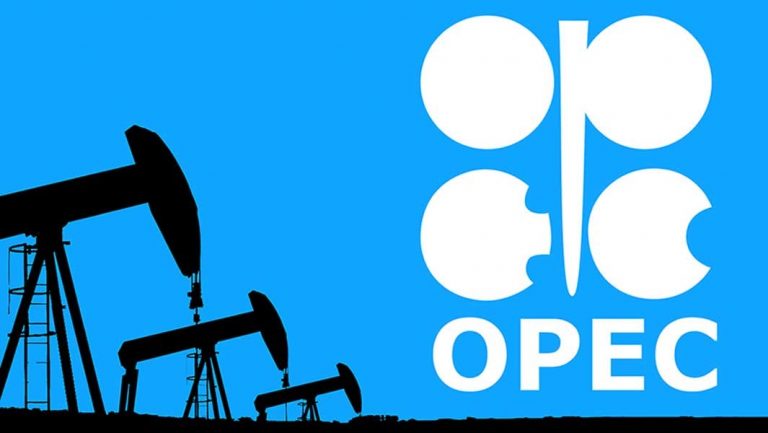The Chairman of the OPEC Board of Governors for 2025 has called on Nigerian oil producers to prioritise domestic refining and value creation instead of exporting raw crude.
Speaking on Wednesday at the Nigerian Association of Petroleum Explorationists Pre-Conference Workshop in Lagos, Adeyemi-Bero, who is also the Chief Executive Officer of First Exploration & Petroleum Development Company, said the country must move away from decades of crude exports and focus on retaining value within the local economy.
He said, “We’ve been an oil and gas exporting country. We produced oil; once there was oil, we put it in a tank and sent it abroad. 40 or 50 years later, people blame Shell and others, but I don’t. They are businesses looking for feedstock for their industrialisation. If you give it to them, they’ll still take it.”
Adeyemi-Bero argued that Nigeria had a responsibility to develop its energy resources locally and use them to drive industrial growth, rather than depend on foreign markets.
According to him, President Bola Tinubu would have returned fuel subsidies if the Dangote refinery had not been there to produce fuel locally.
”Just look at the impact the Dangote refinery has had on foreign exchange and gross domestic product growth. You can imagine if that had happened 50 years ago. If the president had said, ‘I’m cancelling subsidies, and I’m not going to allow multiple exchange rates,’ and we didn’t have the option of having petroleum products in this country, I’m sure he would have changed his policies and gone back to subsidies. It’s as simple as that. Let’s not over-aggregate.
This message is saying, We need to decline exports,” Adeyemi-Bero said.
He spoke further that, “If you go to Saudi Arabia today, if you go to the UAE, if you go to Qatar, if you go to Malaysia, if you go to Brazil, they are expanding the value chain and keeping it in their space. Now, one man built a refinery; we fought him, we argued with him. But the impact of that Dangote refinery on our GDP and foreign exchange is big.”
He added that local refining and crude utilisation would also help stabilise the naira and strengthen the nation’s economy.
“If we can sell some oil in naira, let’s do it if it works for both parties. The strength of the naira is what it commands in trade. This is why nobody wants the naira outside this space, but the day you can pay for oil in naira because both parties agree, it strengthens the naira,” he said.
Adeyemi-Bero stressed that Nigeria must deliberately reduce its dependence on exports and focus on value creation to avoid future economic decline.
“We need to decline exports. All of us like to sell, but the person that will buy from us will be willing to buy at the right price. ‘I’m investing in dollars, so don’t come and buy in naira. If I invest in dollars, then pay me in dollars.’ But we could make that happen,” he stated.
He warned that failure to change course could be costly, saying, “We need to shift from being export-driven to value-driven. If we don’t do this over the next decade, we have failed.”
The OPEC Governor also called for renewed commitment among local operators, noting that international oil companies had already played their part.
“The internationals have done their bit. But I do think that God also decided to hand over to Nigerians. ‘They’ve started it; now let me give it to the owners to make it happen,” he said.
Adeyemi-Bero emphasised that the oil and gas sector remained central to achieving the country’s economic aspirations, including its $1tn economy target.
“Nigeria wants to be a $1tn economy. Let’s not worry about where we are today. Is it possible? Yes. Who is going to make it possible? We have a responsibility, probably the primary responsibility, to drive that energy. Energy access and security is a must,” he declared.
He further noted that energy-led growth was essential for national development, saying, “The oil and gas sector can enable that to happen. Because without electricity, without fuel, the economy is not going to grow. So we have a responsibility.”
Adeyemi-Bero urged industry players to take ownership of Nigeria’s energy future, stressing, “The baton has been placed in our hands. We can have oil and gas like the UAE, Saudi Arabia, or Qatar, small nations punching their weight through their resources. We must use ours to step up as a country.”
Earlier in his welcome remarks, the President of the Nigerian Association of Petroleum Explorationists, Mr Johnbosco Uche, said the pre-conference workshop was a vital part of the association’s annual conference and a platform for industry leaders to deliberate on critical sector issues.
Uche explained that this year’s conference theme, ‘Revitalising the Nigerian Petroleum Exploration and Production Strategies for Energy Security and Sustainable Development’, reflected the urgency of the times and the need for collective industry action.
He said the country must work to increase production to meet its national target while ensuring long-term sustainability.
“In the near term, we need to increase production. The country is pushing to hit the three million barrels per day target. We have to push it to that three million target. But most importantly, sustaining that production is also key,” Uche stated.
The NAPE president underscored the role of explorers in achieving this objective, adding that maintaining technical excellence was vital for the industry’s survival.
punch.ng
FOLLOW US ON:































